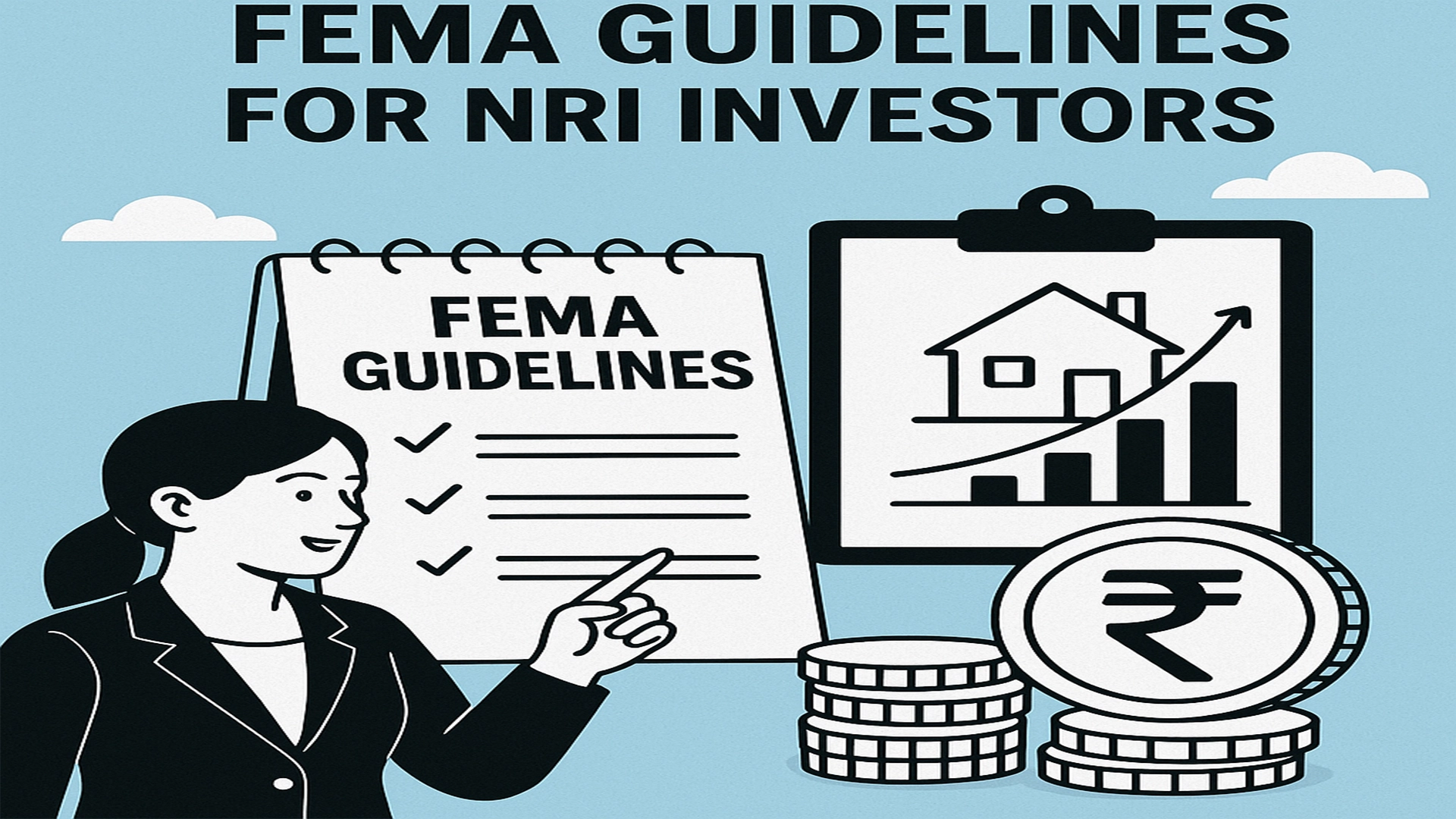Understanding FEMA Guidelines for NRI Investors
For Non-Resident Indians (NRIs), investments in India have become increasingly attractive due to strong economic growth, a diverse financial market, and long-term withdrawal capacity. However, these investments are checked by a set of legal rules set by the Foreign Exchange Management Act (FEMA), 1999. Understanding these FEMA guidelines is important for NRIs to ensure compliance and avoid legal losses.

What Is FEMA?
The Foreign Exchange Management Act (FEMA) is a law enacted
by India's government to regulate currency transactions. It replaced the old
FERA (Forex Regulation Act) in 1999. FEMA focuses on the facilitating external
trade, promoting systematic development and maintaining the foreign exchange
market in India.
For NRIS, FEMA defines DOS and don’ts need to invest
in Indian assets such as equity, mutual funds, real estate, and more.
Who Qualifies as an NRI under FEMA?
As per FEMA, an NRI
(Non-Resident Indian) is an Indian citizen who:
• Lives outside India for employment, business, or vocation.
• The previous financial year has been outside India for
more than 182 days.
Key FEMA Guidelines for NRI Investors
1. Types of Accounts are Allowed
To invest in India, NRIs must use some of the following RBI-approved bank accounts:
- NRE (Non-Resident External) Account: Both Repatriable (both original and interest can be transferred abroad).
- NRO (Non-Resident Ordinary) Account: Price for income earned in India, dividend; not fully repatriable.
- FCNR (Foreign non -president) Account: Fixed
deposits in foreign currency avoid exchange risk.
NRI is required to route all investment-related
transactions through these accounts.
2. Repatriation Rules
• NRE and FCNR accounts allow full repatriation of funds.
• NRO account allows only up to USD 1 million per
financial year to be repatriated (with tax clearance).
• Investments in shares and mutual funds can only be repatriated
when using NRE/FCNR funds on a revival basis.
3. Restricted investment
Under FEMA cannot be:
• Engage in intraday trading on Indian stock
exchanges.
• Invest in agricultural land, plantation property or
farmhouse.
• Trade in currency derivatives or commodities
without specific permissions.
Conclusion
FEMA acts as a protective and regulatory framework for NRIs
to invest in India. By complying with FEMA criteria - for example, using the right
accounts, following the return limits, and investing in allowed instruments - NRIs
can confidently grow their wealth in India.
As India continues to attract foreign investments,
understanding FEMA guidelines will help NRIs make smart, legal, and trouble-free financial decisions.
Read Also
Can Nri Invest in Mutual Funds
Can NRIs Trade in Cryptocurrencies in India

0 comments